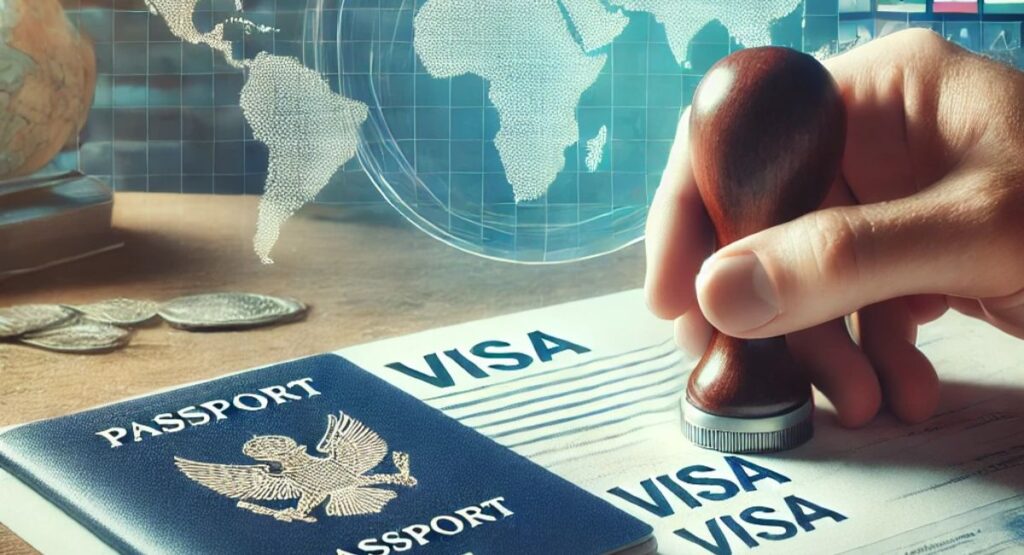Introduction
For Belgian citizens, traveling to Canada can be an exciting opportunity, whether for tourism, work, study, or family reunification. However, the journey begins with understanding the intricacies of the Canada visa application process and the importance of complying with the Canada Border Services Agency (CBSA) regulations. This blog post aims to provide a comprehensive overview of how Belgian citizens can secure a Canada visa and navigate the necessary CBSA declarations effectively.
Understanding Canada Visa Types
Before diving into the application process, it’s essential to understand the different types of visas available. The type of visa you require largely depends on the purpose of your visit: CANADA VISA FOR BELGIUM CITIZENS.
1. Tourist Visa (Visitor Visa)
If you’re planning to visit Canada for leisure, you’ll need a Visitor Visa. This visa allows you to stay in Canada for up to six months. It’s crucial to demonstrate that you have sufficient funds for your stay and that you will return to Belgium after your visit.
2. Study Permit
Belgium citizens wishing to study in Canada for more than six months will need a study permit. To apply, you must first obtain a letter of acceptance from a recognized educational institution in Canada.
3. Work Permit
A work permit is necessary for those who intend to work in Canada. This requires a job offer from a Canadian employer and, in most cases, a Labour Market Impact Assessment (LMIA) to demonstrate that no Canadian citizen is available to fill the position.
4. Permanent Residency
Belgian citizens looking to settle in Canada may consider applying for permanent residency through various programs, including Express Entry, Provincial Nominee Programs (PNPs), or family sponsorship.
The Visa Application Process
Step 1: Determine Eligibility
Before applying, ensure you meet the eligibility criteria for the visa category you’re applying for. Each visa type has specific requirements regarding health, criminal background, and financial stability.
Step 2: Gather Required Documents
Collect all necessary documents, which may include:
- Valid passport
- Proof of funds
- Travel itinerary
- Letter of invitation (if applicable)
- Educational credentials (for study permits)
- Job offer letter (for work permits)
Step 3: Submit Your Application
You can apply online through the Immigration, Refugees and Citizenship Canada (IRCC) website or submit a paper application at a designated Visa Application Center (VAC). Ensure all forms are filled out accurately to avoid delays.
Step 4: Pay the Application Fees
Fees vary depending on the type of visa, so check the latest fee schedule on the IRCC website. Payment can typically be made online.
Step 5: Wait for Processing
Processing times can vary widely depending on the visa type and the volume of applications. Regularly check the status of your application through the IRCC portal.
Step 6: Prepare for Arrival
Once your visa is approved, prepare for your arrival in Canada. This includes familiarizing yourself with CBSA regulations.
Navigating CBSA Regulations
Upon arriving in Canada, you will encounter the Canada Border Services Agency (CBSA), which is responsible for border security and immigration. Understanding their regulations is crucial for a smooth entry. CANADA CBSA DECLARATION.
1. Declaration Form
Every traveler must complete a CBSA declaration card, which includes information about:
- Your travel plans
- Any goods you are bringing into Canada
- Currency or monetary instruments over CAD 10,000
Make sure to declare all items accurately to avoid penalties.
2. Customs Regulations
Familiarize yourself with what you can and cannot bring into Canada. Certain items, such as fruits, vegetables, and some animal products, may be restricted or prohibited. Check the CBSA website for the latest regulations.
3. Duties and Taxes
If you are bringing goods into Canada, be aware that you may need to pay duties and taxes on items exceeding your personal exemption limit. Keep receipts and be prepared to explain your purchases to CBSA officers.
4. Health and Safety Regulations
Ensure you are aware of any health regulations, especially concerning vaccinations or health documentation, as these may change based on global health situations.
FAQs
1. How long does it take to get a Canada visa for Belgian citizens?
Processing times vary depending on the visa type and the specifics of your application. Generally, visitor visas can take a few weeks, while work and study permits may take longer. Always check the IRCC website for the most current estimates.
2. Do I need a visa for short visits to Canada?
Belgian citizens do not need a visa for short visits (up to six months) but must obtain an Electronic Travel Authorization (eTA) if traveling by air.
3. What should I do if my visa application is denied?
If your application is denied, you will receive a letter explaining the reasons. You can appeal the decision or reapply, addressing the issues raised in the denial.
4. Can I work while my study permit is being processed?
No, you cannot work until your study permit is approved. However, once approved, you may work on or off-campus as per the conditions of your permit.
5. What happens if I fail to declare items at the border?
Failing to declare items can result in penalties, including fines, confiscation of goods, or even a ban from entering Canada. Always declare all items accurately.
Conclusion
Securing a Canada visa and navigating CBSA regulations can seem daunting for Belgian citizens, but with the right information and preparation, the process can be manageable. By understanding the types of visas, following the application steps diligently, and adhering to CBSA regulations upon arrival, you can ensure a smooth transition into Canada. Whether you are traveling for leisure, education, or work, being well-informed is the key to a successful journey. Safe travels!

